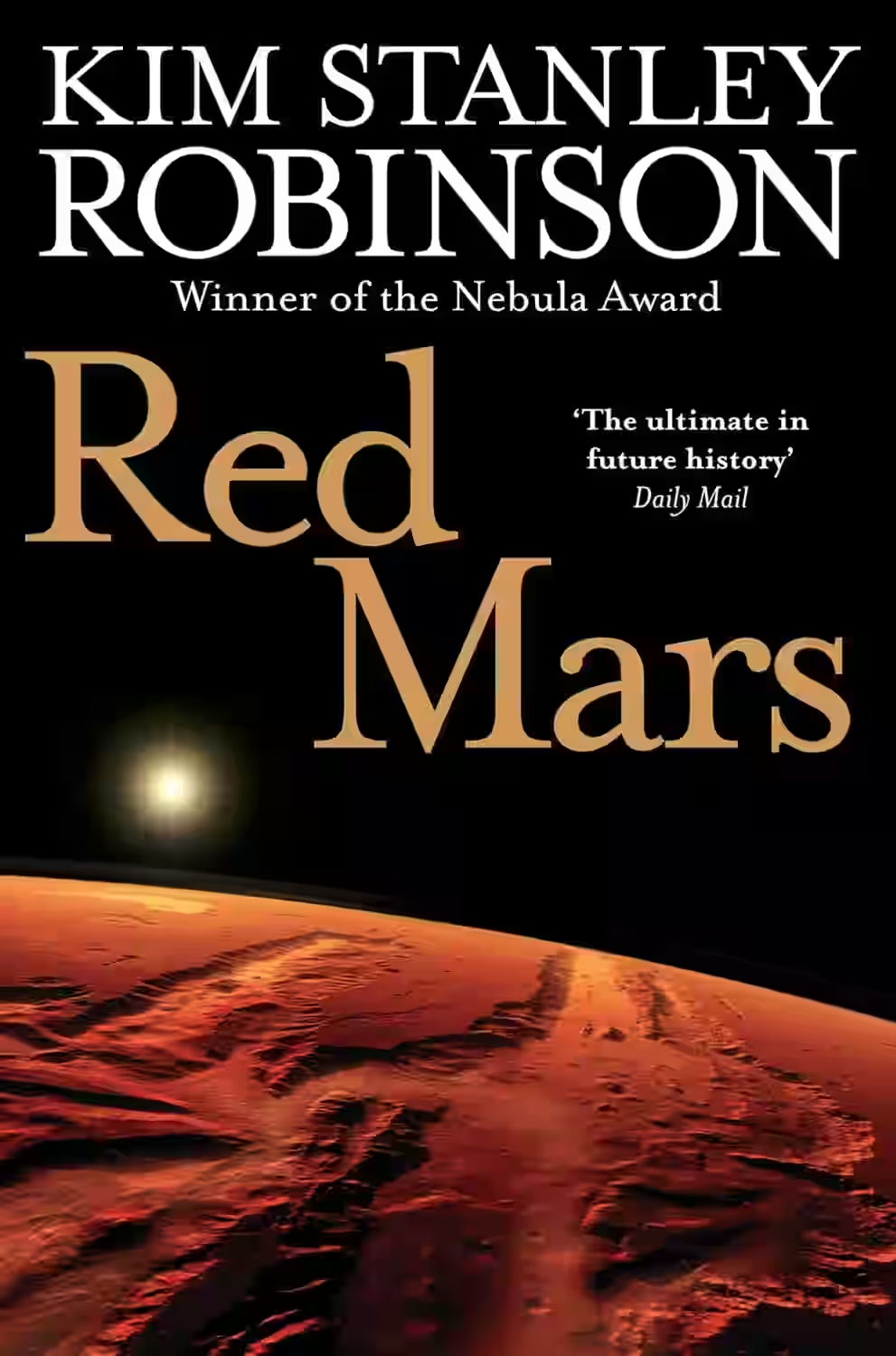Mars Trilogy
Kim Stanley Robinson’s Mars Trilogy—Red Mars, Green Mars, and Blue Mars—is a meticulously detailed vision of humanity’s colonization and terraforming of Mars. It begins with a team of scientists and engineers settling the planet, but as political, ecological, and ethical challenges arise, the narrative expands to explore sociopolitical systems, technological progress, and ecological philosophy. Robinson's background in environmental science shapes the series’ exploration of climate engineering and human adaptation. The trilogy is celebrated for its scientific realism, complex characters, and serious philosophical and political inquiry into what kind of society humanity might build on a new world.

Kim Stanley Robinson's 'Red Mars' is a riveting science fiction novel set in the near future where humanity colonizes Mars. The story follows a group of scientists and colonists as they confront the challenges of terraforming the planet while navigating political intrigue and personal conflicts. Through vivid descriptions and intricate world-building, Robinson explores themes of environmentalism, human nature, and the ethics of space exploration. The book expertly blends hard science with compelling characters, creating a thought-provoking narrative that raises questions about our future both on Earth and beyond. 'Red Mars' is a must-read for fans of complex sci-fi epics.